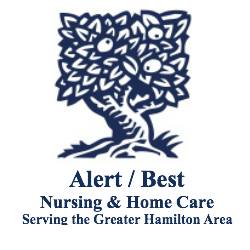
Thank you to our friends at Alert / Best Nursing & Home Care for bringing awareness to this important issue.
With an aging population and changes in health care, such as shorter hospital stays, care is being provided by people who aren’t healthcare professionals. These people are caregivers.
A caregiver is anyone who provides help to another person in need whether that’s a spouse, partner, friend or neighbor.
Care giving is rewarding but stressful Caregiver stress is the emotional and physical strain of care giving. Being there for your loved ones when they need you is a core value for many. Caregivers who experience the most stress are most venerable to changes in there own health.
Signs of caregiver stress As a caregiver you may be focused on your loved one. You may not realize that your own health and well-being are at risk.
Watch for these signs:
- Feeling tired often
- Feeling overwhelmed and irritable
- Sleeping too little or too often
- Gaining or losing excessive weight
- A loss of interest in the things you used to enjoy
Too much stress, especially over time, can harm your health.
As a caregiver, you are more likely to experience depression and /or anxiety. In addition, with out enough physical activity, a balanced diet, social activity and time for relaxation your risk for serious medical problems increases.
Dealing with caregiver stress
- The emotional and physical demands of care giving can strain even the most resilient person.
- Accept help. Don’t be afraid to ask.
- Join a support group a great source of encouragement and a way to make new friends in similar situations.
- Set personal health goals. Set a goal to get physically active, eat healthy and be sure to get some quality sleep time to let your body heal.
- See your doctor. Make sure he is aware that you are a caregiver
After many years of living the journey, I understand the meaning of Caregiver Stress.
